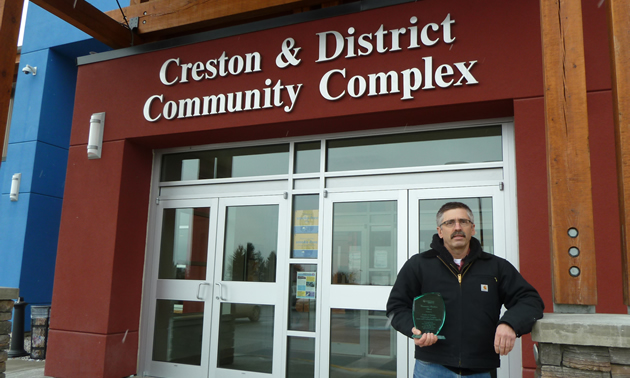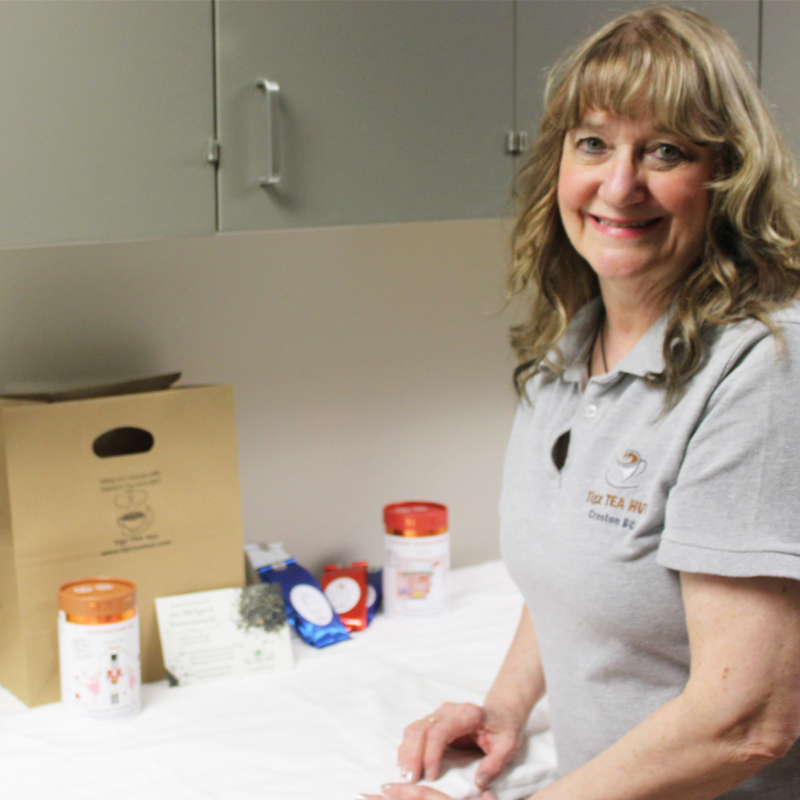Energy conservation pays big bucks
FortisBC pays rebates on energy-efficient construction projects

Neil Ostafichuk, recreation supervisor for the Creston & District Community Complex, holds the FortisBC award received for the building's energy efficiency. — Photo courtesy Neil Ostafichuk
In November 2012, the Creston & District Community Complex received a second FortisBC PowerSense Award for conservation excellence. Back in 2005, the upgrade done to the refrigeration and lighting systems at the complex resulted in a FortisBC award for environmental excellence.
Neil Ostafichuk, recreation supervisor for the complex, said that the current project, initiated in 2007, was a combination rebuild and new build, and energy efficiency was a key element in the process right from the design stage.
“Our whole region is on this track, but this was a local project.” Ostafichuk said. “We did lots of research to figure out what the paybacks would be.”
One step after another
From the referendum in 2007—confirming community support for the project—to the revamped complex’s grand opening in 2010, to the opening of the fitness centre and replacing the oldest part of the building with an arena upgrade in 2011, it’s been a long haul. As of December 2012, the finishing touches were being done to the concession, bringing the whole building up to current standards.
“The complex serves a total population of about 13,000," said Ostafichuk, "and we made a commitment to keep the building open during the reconstruction, which made it more of a challenge.”
Make a good plan
Ostafichuk has a word of advice to anyone starting a project: “Talk to your FortisBC person first, if you’re doing anything that’s going to affect power consumption, because there may be opportunities to get some rebates. Part of the cost of this upgrade has already been paid back in energy savings.”
Motors, insulation, windows and mechanical systems were all components that were improved upon. Occupancy sensors have been installed for individual rooms, so lights and ventilation turn off automatically when a room is empty.
“Because this project was fast-tracked, we delayed doing the paperwork that FortisBC needs for the rebates, but once it’s submitted we hope to get $40,000 to $50,000 in rebates,” Ostafichuk said. “So it’s certainly worth doing the paperwork."






Comments